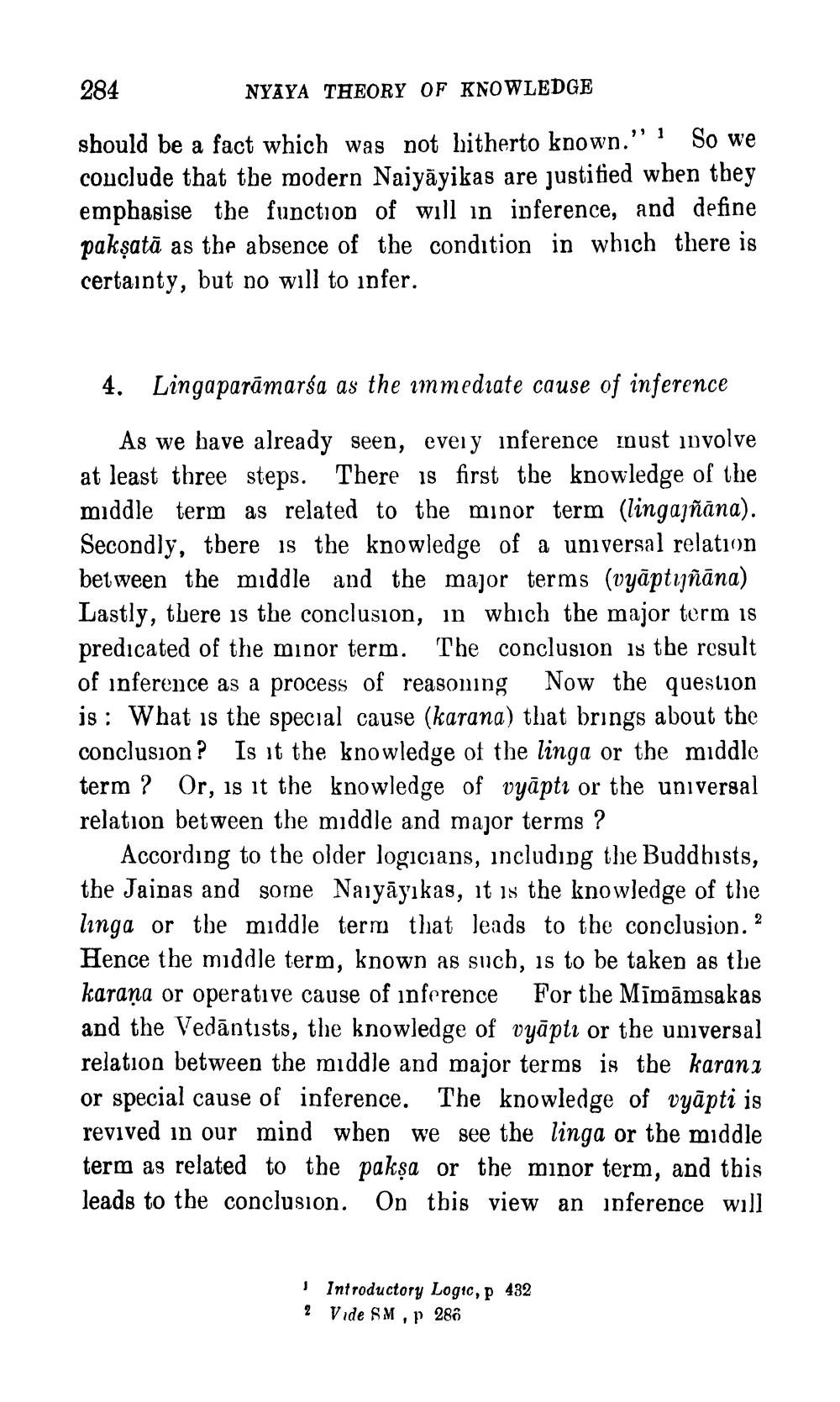________________
284
NYAYA THEORY OF KNOWLEDGE
should be a fact which was not hitherto known."! So we conclude that the modern Naiyāyikas are justified when they emphasise the function of will in inference, and define pakşatā as the absence of the condition in which there is certainty, but no will to infer.
4. Lingaparāmarsa as the immediate cause of inference
As we have already seen, every inference inust involve at least three steps. There is first the knowledge of the middle term as related to the minor term (lingajñāna). Secondly, tbere is the knowledge of a universal relation between the middle and the major terms (vyāptijñāna) Lastly, there is the conclusion, in which the major term is predicated of the minor term. The conclusion is the result of inference as a process of reasoning Now the question is : What is the special cause (karana) that brings about the conclusion? Is it the knowledge of the linga or the middle term ? Or, is it the knowledge of vyāptı or the universal relation between the middle and major terms ?
According to the older logicians, including the Buddhists, the Jainas and some Naiyāyıkas, it is the knowledge of the linga or the middle term that leads to the conclusion. 2 Hence the middle term, known as such, is to be taken as the karaṇa or operative cause of inference For the Mīmāmsakas and the Vedāntists, the knowledge of vyāptı or the universal relation between the middle and major terms is the karana or special cause of inference. The knowledge of vyāpti is revived in our mind when we see the linga or the middle term as related to the pakṣa or the minor term, and this leads to the conclusion. On this view an inference will
1 Introductory Logic, p 432 2 Vide SM ,p 280




